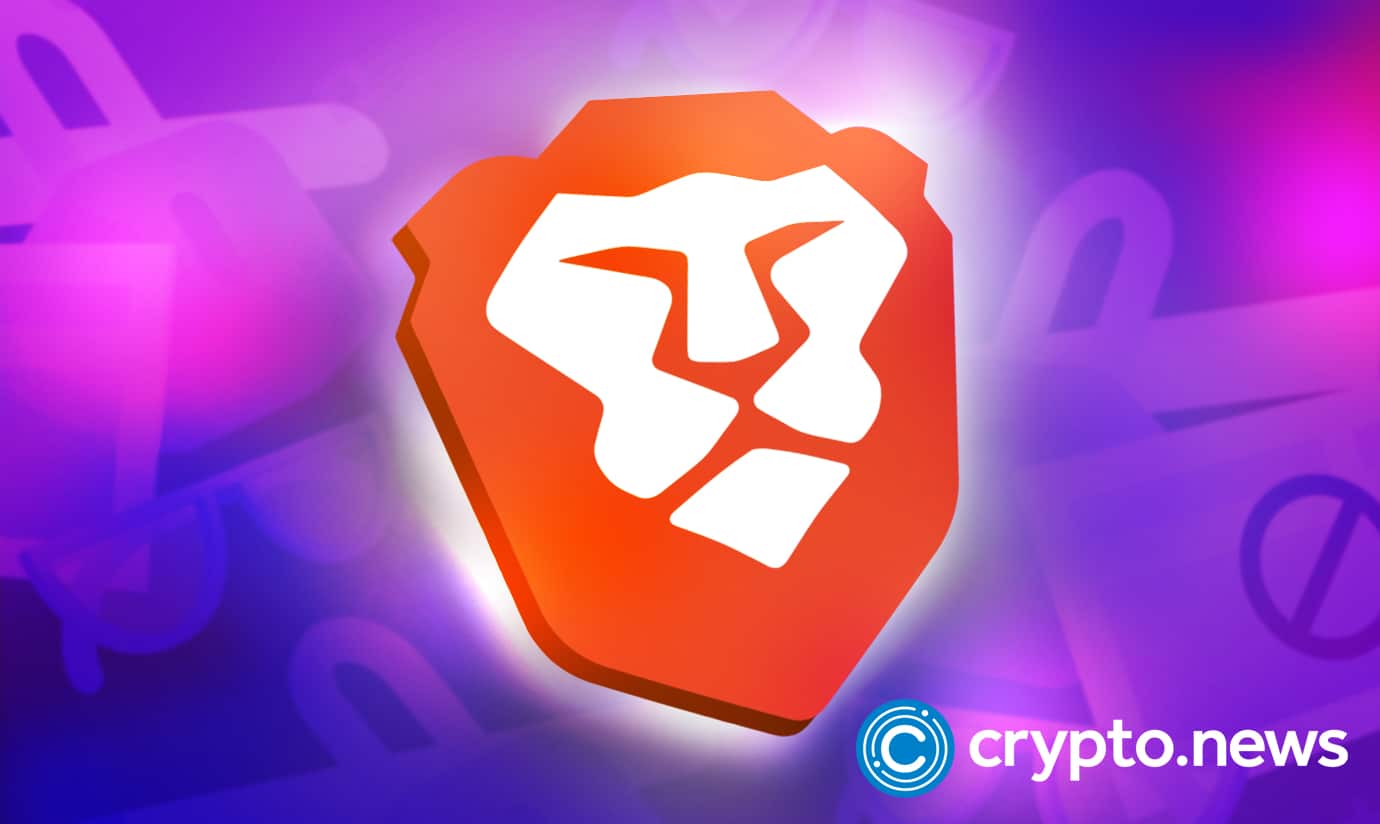The first week of December, I went to Miami Art Week (Art Basel), the for-profit, privately owned, and managed international art fair. Although fine art got the spotlight that week, the event attracted several tech and finance companies looking to grow their network and make or receive investments.
I spent 100% of my time at events for venture capitalists, bankers/financiers, startups, and individuals that work in tech. The conversations I had in those spaces gave me a better idea of the current sentiment around digital assets, given the ongoing bear market. Here are what I learned.
Nobody says blockchain anymore
The very first thing I noticed is that nobody refers to blockchain or digital asset projects as “blockchain-based projects,” “a project that uses cryptocurrency,” or “a project that uses digital assets.” Instead, everybody throws projects of that nature under the broad umbrella of web3.
Although web3 started as a way to describe private ownership of your content and property that could be distributed and consumed directly from peer-to-peer, it has now become the new way to say, “This project uses a blockchain or a digital asset.” It’s no secret that web3 is one of the latest buzzwords to be used in the blockchain and digital asset space, but still, it was a surprise that people go out of their way to avoid saying the word blockchain or ‘cryptocurrency’ these days. I believe they do this for two reasons:
- The events that have taken place in the digital asset industry in the last six months have given words like “blockchain,” “bitcoin,” “Ethereum,” “crypto,” etc., a negative connotation, while web3 is so broad and obscure that it narrowly escapes being clumped in with the words that have been used to describe blockchain-based projects for the last eight years.
- I think newcomers, people that began participating in the blockchain and digital asset space around 2020 and afterward, genuinely know the space as being referred to as web3 since they joined at a point when the buzzwords of the past were beginning to get phased out of the conversation.
This brings me to my next observation…everyone that I talked to that joined the blockchain and digital asset space in the “web3 era” are significantly underwater on their investments.
Retail investors are ruined
Most of the web3 era retail investors I talked with said they were down roughly 85% on their initial investment. With hindsight, it is clear why this is the case. The web3 era of blockchain enthusiasts and investors made their first investments right before the bear market began.
Unfortunately, the bad timing of their investments has deeply scarred them and played a big role in shaping their overall opinion of the blockchain and digital asset space. Most people in this category I talked to admitted to investing out of FOMO and expressed that the bags they are left holding do not have any utility outside of price speculation.
As a result, many of these web3 era retail investors will stay away from the blockchain and digital asset industry for quite some time now. If a new trend pops up and it picks up traction, the web3 era of retail investors will be skeptical and recall their personal experience of going in on a promising trend, only to lose 85% of their money. I believe the group that has been deeply scarred will only return to the blockchain and digital asset space when everyone around them is making money except for them, and FOMO kicks in once again.
Accredited investors and institutions are still investing
Despite retail investors being financially ruined and hesitant to return to the digital asset markets, accredited investors and institutions told me that they are continuing to make investments in the space, although at a different pace than they were investing before. One hedge fund I spoke with even said that they are more profitable now than before the bear market because there are more arbitrage opportunities available now that one of the largest market makers, Alameda Research, has been knocked out of business.
Some of the investors I talked to are still on the hunt for companies that use coins or tokens. Others were actively moving away from models that use coins or tokens and searching for/investing in “infrastructure plays,” companies creating solutions that use blockchain protocols but not coins and tokens. It’s important to note that the investors in search of coins and tokens were the loud minority. Most of the venture capital firms and entities that invest as an institution are more interested in investing in a company in exchange for equity.
Despite the persistent optimism, all investors expressed that they are scrutinizing the potential deals that come across their desks at a higher degree and spending more time and energy in the due diligence process than before the bear market began.
In summary
The sentiment around businesses that use a blockchain is generally negative when you talk to retail investors, and the sentiment is neutral when you talk about “smart money.” Retail investors talk poorly of blockchain projects and are skeptical about their future because most of them invested in vaporware at inopportune times and are now down roughly 85% on their initial investment.
I believe that smart money is neutral because some aren’t ready to accept the fact that they made a bad investment in a company using a blockchain for some unlawful purpose, so the investor is using their capital to defend the bad investment. But I acknowledge others in the “smart money” group are optimistic for two reasons: (1) they truly believe that a blockchain can be used somewhere within a businesses technology stack to increase operational efficiency and reduce costs, (2) and they know there are some good deals in the market at the moment since the bear market has forced both companies and investors to re-assess valuations.
Unfortunately, these two groups—retail investors/consumers and accredited investors/blockchain businesses—don’t have clear lines of communication with one another. So the companies that are working on legitimate ventures tend to fly under the radar, while the retail investors and consumers who made poor investment decisions continue to believe and spread the word to their network that they got burned on a web3 project and that most coins and tokens don’t create any real value in the world.
Until a company or individual builds a product or service that consumers desire and demand that uses blockchain somewhere in the technology stack, the negative sentiment around the blockchain and digital asset space will continue. Consumers and retail investors are the loud majority in this situation, and at the moment, they don’t have many—if any—good things to say about blockchain because they have been burned by coins and tokens that live on-chain.
The good news is companies and independent developers are building desirable apps and services, especially in the enterprise arena. The bad news is enterprise solutions typically don’t have the same socially driven network effect that leads to a change in market sentiment.
No one that I spoke to put a number on the amount of time it will take for things to turn around; regardless, all of the conversations that I had indicated that people continue to observe the blockchain and digital asset space, irrespective of if they plan on being a market participant again.
Watch: The BSV Global Blockchain Convention panel, The core of Web3 is data ownership
width=”560″ height=”315″ frameborder=”0″ allowfullscreen=”allowfullscreen”>
New to Bitcoin? Check out CoinGeek’s Bitcoin for Beginners section, the ultimate resource guide to learn more about Bitcoin—as originally envisioned by Satoshi Nakamoto—and blockchain.
Read More: news.google.com









 Bitcoin
Bitcoin  Ethereum
Ethereum  Tether
Tether  XRP
XRP  Solana
Solana  USDC
USDC  Dogecoin
Dogecoin  Cardano
Cardano  TRON
TRON  Lido Staked Ether
Lido Staked Ether  Wrapped Bitcoin
Wrapped Bitcoin  Sui
Sui  Chainlink
Chainlink  Avalanche
Avalanche  Wrapped stETH
Wrapped stETH  Stellar
Stellar  Shiba Inu
Shiba Inu  Hedera
Hedera  Toncoin
Toncoin  Bitcoin Cash
Bitcoin Cash  Hyperliquid
Hyperliquid  Pi Network
Pi Network  LEO Token
LEO Token  Litecoin
Litecoin  USDS
USDS  Polkadot
Polkadot  WETH
WETH  Monero
Monero  Wrapped eETH
Wrapped eETH  Pepe
Pepe  Bitget Token
Bitget Token  Binance Bridged USDT (BNB Smart Chain)
Binance Bridged USDT (BNB Smart Chain)  Ethena USDe
Ethena USDe  Coinbase Wrapped BTC
Coinbase Wrapped BTC  WhiteBIT Coin
WhiteBIT Coin  Uniswap
Uniswap  Bittensor
Bittensor  NEAR Protocol
NEAR Protocol  Dai
Dai  Aptos
Aptos  Aave
Aave  OKB
OKB  Ondo
Ondo  Internet Computer
Internet Computer  Ethereum Classic
Ethereum Classic  BlackRock USD Institutional Digital Liquidity Fund
BlackRock USD Institutional Digital Liquidity Fund  Cronos
Cronos  Tokenize Xchange
Tokenize Xchange